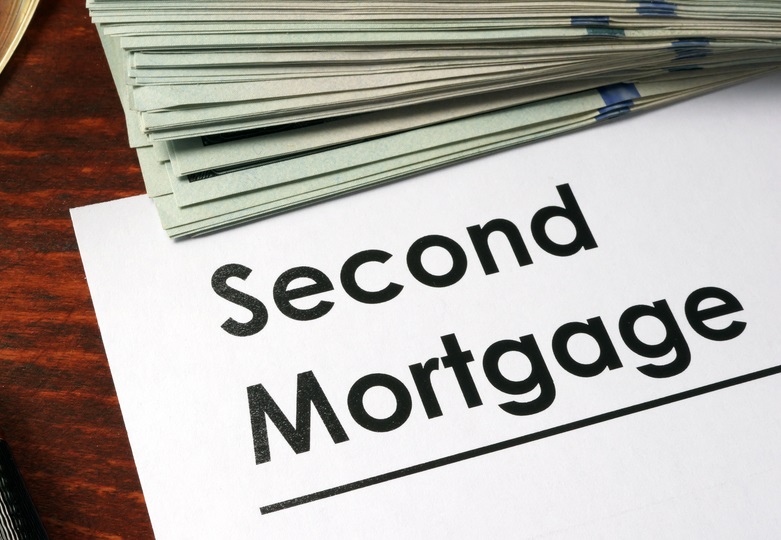 With more and more property owners in this country looking to refinance or to raise urgently needed capital, there are an increasing number of lending options to choose from.
With more and more property owners in this country looking to refinance or to raise urgently needed capital, there are an increasing number of lending options to choose from.
Remortgaging remains the most popular and most viable option for many consumers, allowing owners to take advantage of lower or more competitive interest rates in order to reduce their monthly out-goings, pay off mortgages at a quicker rate, pay off debts or raise money for other purposes (such as home improvements).
However, in some cases, remortgaging may prove to be unsuitable or (even) untenable and this has been reflected by the rapid growth in second charge mortgages (also known as secured loans) over recent years. The value of new business demonstrating a 14% increase during 2017 and a 2% year-on-year increase in April of this year alone (according to the Finance and Leasing Association).
But why?
Well, firstly, high levels of competition between lenders have meant that second charge loan interest rates are more attractive than at any previous time making comparisons with a remortgage a worthwhile exercise to get the best overall deal.
What’s more, regulation of the market by the Financial Conduct Authority (introduced in March 2016) has meant all secured loans are sold under the same regime as a conventional mortgage, with the same levels of recourse and a requirement that borrowers are only offered suitable products. Hence the products are cheaper than they were, easier to exit plus the sales regime is designed to protect consumers from taking on a bad product.
Perhaps the main reason second charges are so popular is that they offer greater flexibility to cater for borrowers who are not well served by mainstream lenders.
So, how do second charge mortgages work?
Second charge mortgages are loans which are secured against a property just like a normal mortgage but the loan is granted by a different lender on different terms giving borrowers the chance to shop around without changing their existing mortgage provider.
There are a number of lending scenarios in which second charge options are often more advantageous to borrowers than other alternatives. Let’s take a look at a few.
You want to keep hold of a great rate
Your current mortgage rate is low, and you wish to raise money on your property without having to change either your existing lender or to forego the benefits of the interest rate and repayment method which they offer.
A second charge loan may mathematically be the best bet. Remortgaging could involve having to transfer your first charge loan onto a higher rate of interest. This could also apply if you have an interest-only mortgage and wish to avoid the prejudicial terms that might be incurred by switching lenders.
You want to avoid repayment fees
If your existing mortgage or provider charges a penalty fee for early repayment but refuses to lend additional funds, then it may very well be cheaper for you to take out a second charge loan than to remortgage and trigger these expensive forfeiture fees (even allowing for the slightly higher rates on second charge loans).
You will, of course, need to take time and care in order to compare the two costs before proceeding with either option and good brokers will do this for you and advise which suits you best.
Your income is not standard
The high street is still some way behind keeping up with the changing face of society. The way we work and earn has evolved and, unfortunately, many high street lenders have yet to catch on.
If you are self-employed and are struggling to provide adequate proof of income and/or accounts or are simply unable to secure finance from a mainstream lender, then you may find that a second charge lender will provide a level of flexibility.
You want to raise cash quickly or for an unusual purpose
Arranging a second charge loan tends to be quicker and the lenders will consider loan purposes which most first mortgage lenders won’t consider, for example, business purposes or paying of a hefty tax bill.
You’re not a ‘typical’ borrower
Lastly, second charge options often cater to more ‘niche’ or neglected groups (such as those with adverse credit histories, older borrowers, those who wish to borrow at higher values or those who need to secure interest-only lending).
Many mortgage brokers are still unfamiliar with how second charges can assist their clients so if you find that high street lenders or your broker can’t fulfil your requirements consider finding a company which specialises in both first and second mortgages so both bases are covered.
Promise Money is a specialist mortgage broker.
Click here to see Second charge best buy tables





hi im looking for advice please,ive had my house repossesed and now sold.There was a second charge on the property,i had a letter from the acting solicitor for the mortgage stating that the surplus left over from the sale had been paid back to the loan company as it was in arrears(the loan)Due to the current climate and not having much money plus being in temporary accomodation,is it possible to ask for the surplus amount back to help with bills,etc?The extra money would be so helpful.Please can you let me know .Many thanks Klare Lambrou
No, I’m afraid you would not be able to do that.